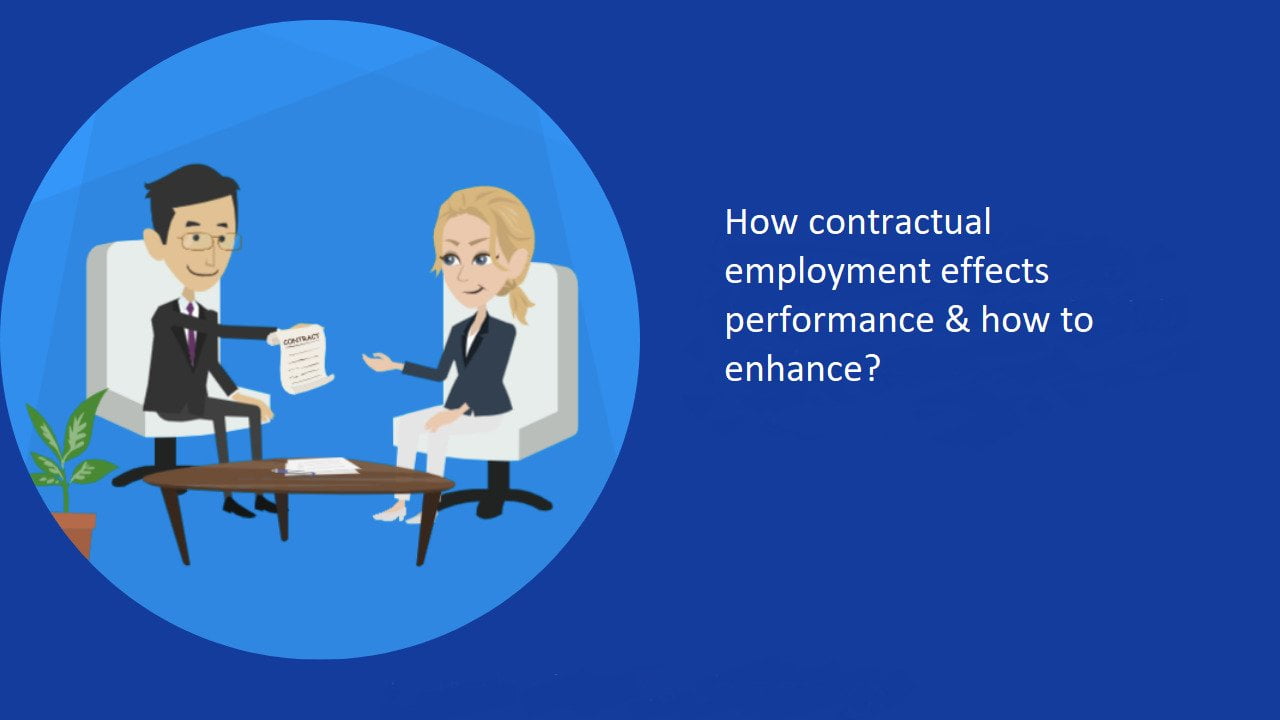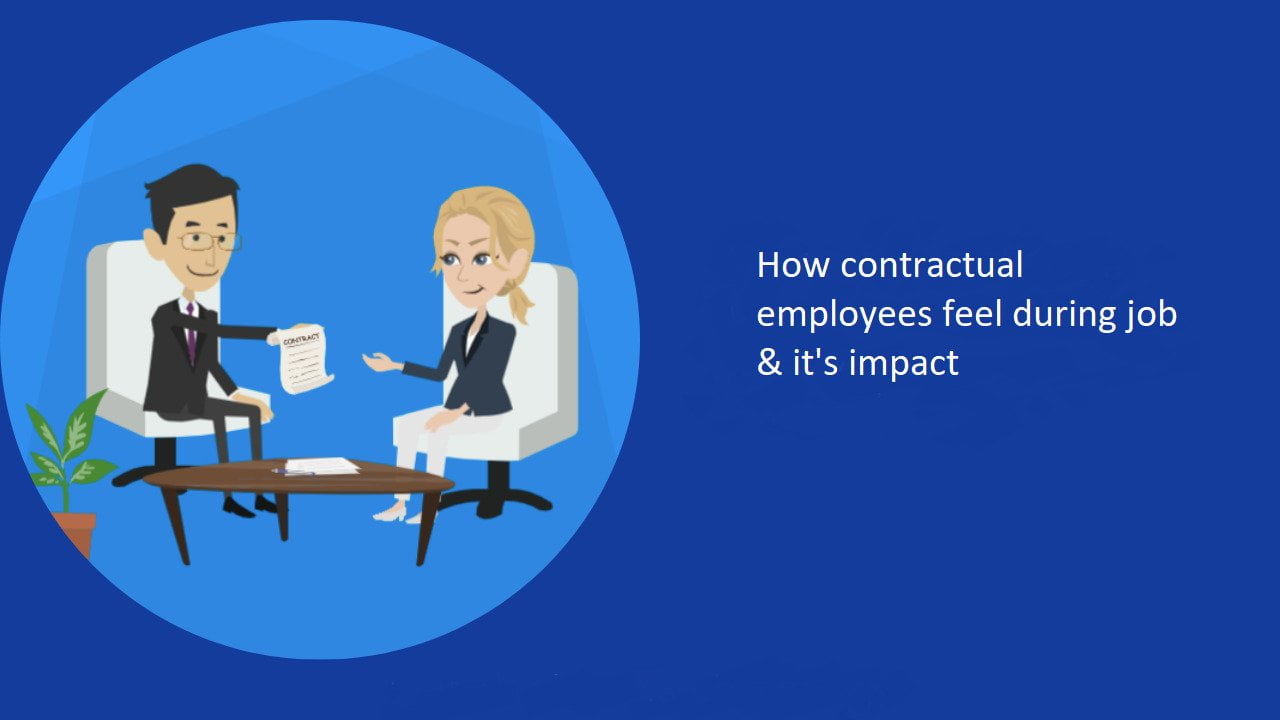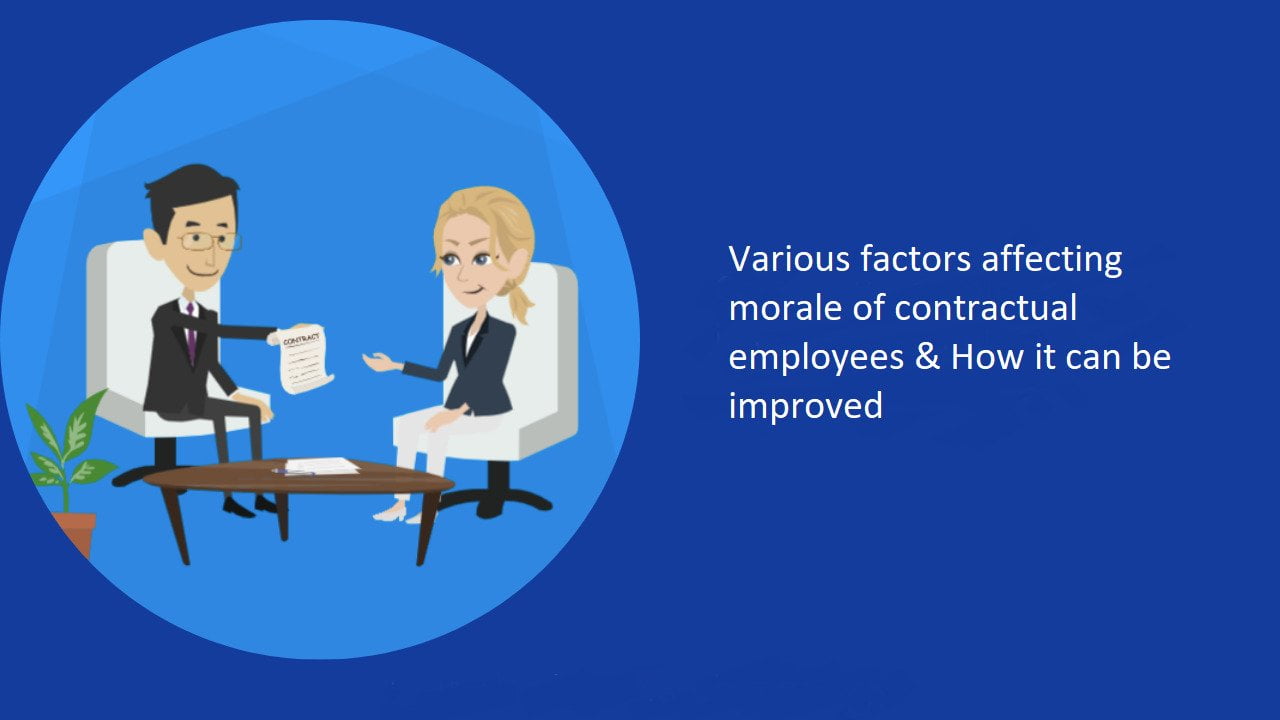How contractual employment effects performance & how to enhance?

How contractual employment effects performance & how the performance of contractual employees can be enhanced?
Let’s discuss about how contractual employment effects performance of an contractual employee as it is also a most important topic in respect of contractual employment. The feelings and emotions experienced by contractual employees can have a significant impact on their performance in the workplace. Here’s how these factors can influence their job performance:
1. Job Satisfaction: Job satisfaction plays a crucial role in an employee’s motivation and engagement. If contractual employees feel dissatisfied due to job insecurity, lack of benefits, or a sense of exclusion, their motivation to perform at their best might be compromised.
2. Commitment to the Job: Contractual employees who feel uncertain about their future in the organization may be less committed to their roles. The lack of a long-term perspective might result in reduced effort and dedication.
3. Productivity: Job satisfaction and commitment are closely linked to productivity. When contractual employees are satisfied and committed, they are more likely to be productive and contribute effectively to their assigned tasks.
4. Skill Development: The level of motivation and career prospects can influence contractual employees’ willingness to invest in skill development. If they feel their contract limits opportunities for growth, they might be less inclined to acquire new skills that could benefit their performance.
5. Team Dynamics: A sense of exclusion or not feeling fully integrated into the team can affect collaboration and communication. Effective teamwork is essential for achieving collective goals, and such barriers can hamper team performance.
6. Stress and Mental Health: Job insecurity and financial concerns can lead to increased stress and anxiety, which can negatively impact concentration, decision-making, and overall mental well-being. This can, in turn, affect job performance as this is a common reason why the morale of contractual employees might experience a downturn.
7. Work-Life Balance: The stress of job insecurity or high workloads may disrupt a contractual employee’s work-life balance. Struggling to manage personal and professional responsibilities can lead to reduced focus and productivity.
8. Innovation and Creativity: Job satisfaction and a positive work environment are associated with greater creativity and innovative thinking. If contractual employees feel undervalued or limited in their contributions, they might be less likely to offer creative solutions to challenges.
9. Retention and Turnover: Dissatisfied contractual employees might be more inclined to leave their positions prematurely, leading to increased turnover. High turnover rates can disrupt projects, decrease institutional knowledge, and impact overall team dynamics.
How the performance of contractual employees can be enhanced?
Now as mentioned above we have seen that how contractual employment effects performance, it is also necessary to discuss about the possibilities of enhancement of performance. Enhancing the performance of contractual employees requires a proactive and supportive approach from employers. Here are some strategies that organizations can implement to boost the performance and job satisfaction of contractual employees:
1. Clear Communication: Provide clear and transparent communication about the terms of the contract, the expectations, and the potential for contract renewal or extension. Keep contractual employees informed about relevant updates and changes within the organization.
2. Recognition and Appreciation: Recognize and appreciate the contributions of contractual employees. Regularly acknowledge their efforts, celebrate their achievements, and include them in team recognition and appreciation activities.
3. Fair Compensation and Benefits: Offer competitive and fair compensation packages to contractual employees. If possible, consider providing certain benefits such as access to health insurance, paid time off, or other perks to enhance job satisfaction.
4. Training and Development: Provide opportunities for skill development and career advancement, even for contractual employees. Offering training programs and workshops can help them enhance their skills and stay relevant in the job market.
5. Inclusive Work Environment: Foster an inclusive work culture where all employees, regardless of their employment status, feel valued and respected. Encourage collaboration and teamwork among permanent and contractual staff.
6. Career Path Development: Discuss career development plans with contractual employees, outlining potential growth opportunities within the organization or suggestions for their career advancement beyond the contract period.
7. Performance Feedback: Provide regular performance feedback to contractual employees, highlighting areas of strength and opportunities for improvement. Constructive feedback can help them grow and excel in their roles.
8. Work-Life Balance Support: Encourage work-life balance for all employees. Be flexible when possible with work hours and consider remote work options if feasible, especially for roles that allow for it.
9. Engaging Work Assignments: Offer challenging and engaging work assignments that align with the skills and interests of contractual employees. Providing meaningful work can increase motivation and job satisfaction.
10. Mentorship and Support: Assign a mentor or buddy to help contractual employees integrate into the organization, answer questions, and provide support throughout their contract period.
11. Social and Networking Opportunities: Encourage social interactions and networking opportunities for contractual employees to build relationships within the organization. This can help reduce the feeling of exclusion.
12. Performance-Based Incentives: Consider offering performance-based incentives or bonuses to reward exceptional work and encourage high performance.
13. Career Transition Support: If a contractual employee’s contract is not renewed or extended, provide career transition support, such as guidance on job searching, resume building, and interview skills.
By implementing these strategies, organizations can create a positive work environment that promotes high performance and job satisfaction among their contractual employees. Building a culture of inclusion, recognition, and support can contribute to a more engaged and motivated workforce, leading to improved overall performance and productivity.






